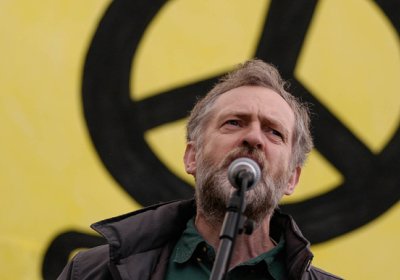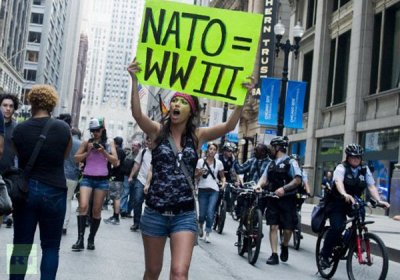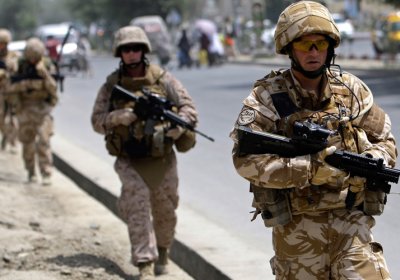Former British prime minister Tony Blair should be on trial at The Hague rather than parading the medieval trappings of wealth and power, argues Lindsey German.
Lindsey German
The looming economic crisis is serving to exacerbate tensions and competition between different nation states and blocs, writes Lindsey German.
For some people, it was impossible to believe that this day would come. Seven years after John Chilcot started to take evidence in a British inquiry into the Iraq War and 12 years after the previous inquiry into the war, many anti-war protesters could be forgiven for being sceptical about what the report would say.
First impressions, announced over microphones and megaphones while being read from mobile phones, were met with a militant response. There was a sense of vindication for those of us who opposed the war from the outset and has renewed our determination.
I come from the same generation as Jeremy Corbyn. We were all born into families who had lived through the war.
My dad joined up as soon as he could and was in the navy for five years. My mum was in a reserved occupation. Her first boyfriend was a rear gunner who was shot down over Berlin in 1943, aged 19.
One of my uncles lost his leg at Niemagen. My primary school had air raid shelters. Most of the dads of my friends had been in the services.
Running scared. That is the only explanation for the increasingly desperate and angry denunciations from the right wing of Britain's Labour Party, as Islington North MP Jeremy Corbyn's campaign looks more and more likely to win party’s leadership election on September 12.
No one can have anything but the profoundest condemnation for the attacks on the Paris offices of the satirical magazine, Charlie Hebdo. It is reported that 12 people are dead, shot in a commando style attack, and that at least nine of them are journalists.
The magazine has recently published a cartoon of the Islamic state leader, and has a record of publishing anti-Islamic satire. The gunmen are assumed to be in some way connected with Islamic State (ISIS).
The barriers are going up across south Wales. Huge steel fences block off buildings, including Cardiff castle. Roads are closed. Children are promised a shorter school day or maybe no school at all. Rail services are disrupted.
All so that a group of politicians and military men can meet in a country hotel outside Newport for a September 4 and 5 NATO summit to plan more of the military interventions that have contributed to a world now more seriously threatened by major wars than at any time since 1945.
United States planes have launched air strikes in Iraq again. The war in Ukraine is reaching a bloody outcome as the Kiev government crushes the rebellion in the east of the country.
A top US general was killed in a supposedly safe base in Afghanistan, and the Taliban overran Sangin province, where many British soldiers were killed.
A Royal Navy ship was dispatched to Libya to rescue British citizens as the embassy closed due to fierce fighting between militias.
Israel restarted its brutal assault on Gaza and the death toll of Palestinians reached nearly 2000.
More than a decade after the most contested military intervention of modern times, the fall of Mosul, Iraq's second largest city, to Islamic fundamentalists ISIS, underlines the disastrous consequences of the Bush-Blair war in Iraq.
As Iraq disintegrates, Barack Obama's statement that he doesn't rule out anything in dealing with the crisis, shows how little he recognises US and Western responsibility for the chaos now spreading across the region.
It beggars belief that there are still voices calling for bombing or more intervention to deal with "a terrorist threat".
The May 22 attack in Woolwich yesterday was horrific. There can be no justification for a murderous attack on an individual soldier in the streets of London. It must have been awful, too, for the local people who witnessed it.
Unlike with most terrorist attacks or indeed other crimes, we have been able to see film footage of the perpetrators, hear testimony from the witnesses who saw or talked to them. So we know what these men say motivated them.








